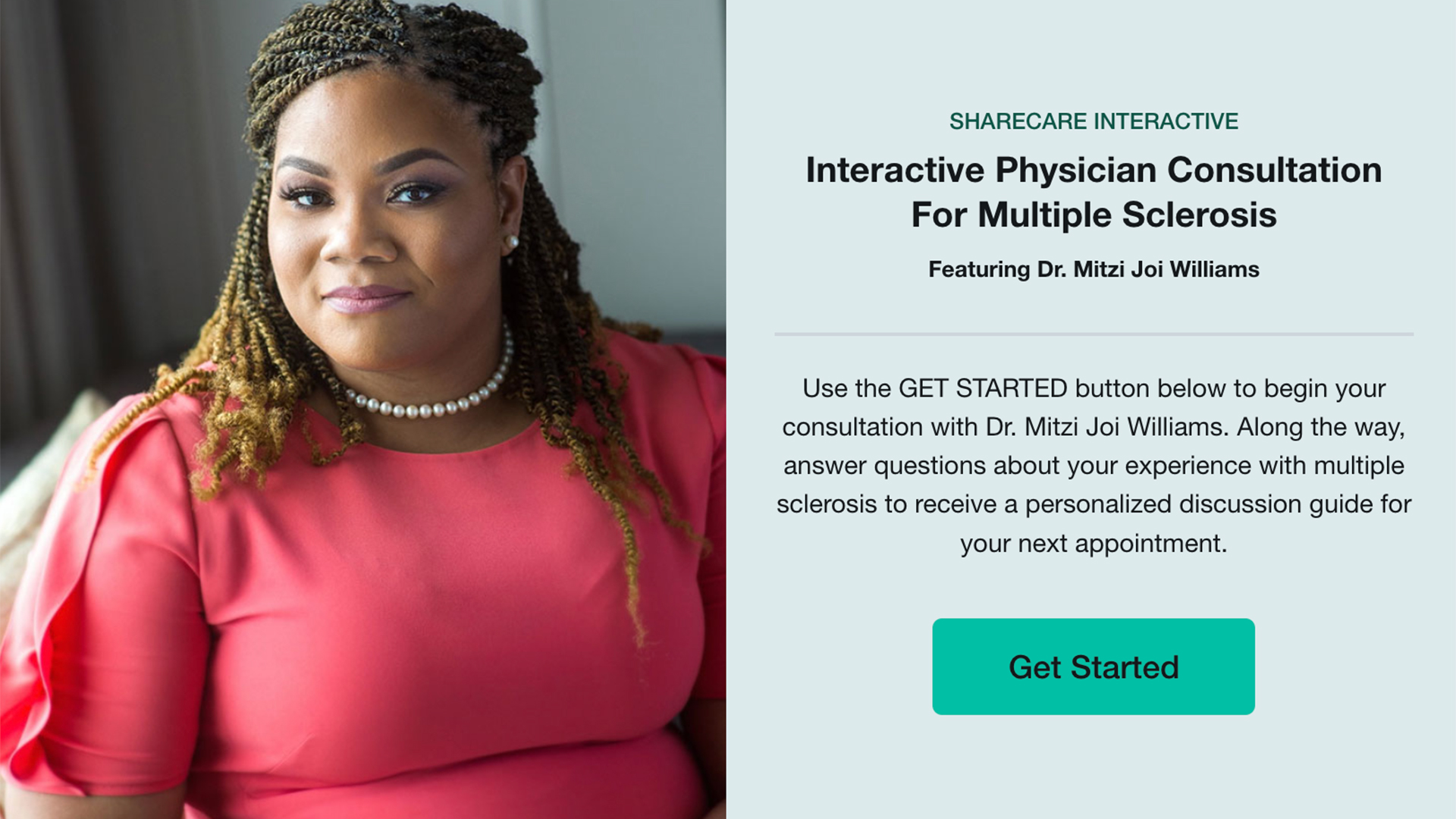Updated on October 23, 2024
The face of MS is changing, and multiple sclerosis patients must be engaged advocates for themselves and others.

Transcript
Self-advocacy is not just reactive, but also proactive. [MUSIC PLAYING]
One of my challenges and goals is to educate the neurological community that the face of MS is changing.
I think the other side of that is that patient self-advocacy is also extremely important.
You know, making sure that if you know something is wrong with your body, and you don't get the answers you need, that you're saying, OK.
Well, I need to go somewhere else to get those answers. So Caroline, tell us a little bit about some examples of self-advocacy that you've seen
or maybe people that you've worked with, where that has been effective in getting them access to the appropriate treatment.
I think a big thing for me with people with MS, especially when they're starting to self advocate, is to find out--
you know, we'll go through what their real issues are, what their goals are and encourage that shared
decision-making. And that's what's so important. So there's so much misinformation
that people get confused about, and you really need the expert of the doctors, experts, and physical therapists, of the nurses.
And tie that all together with what your own personal needs and desires are. Then I think that that--
to me, that helps that person find that self-advocacy to fight for themselves.
I totally agree that it's very important to have many members on your team-- neurologist, primary care physician, even, PT, OT,
everyone and anyone. And it's important that they're all on the same page so that communication between the healthcare team
is really important. But I think this all stems back to knowing what to advocate for. Especially if you're newly diagnosed,
it can be hard to understand what you can get help with. So I think part of advocacy is also
understanding what is out there and what tools you can use or look out for--
physical therapy being one of them. I think that that's a lot of the issues, too, that we're so focused on treating the patient
and not educating the patient themselves. But how do we make it known in society that these options are available?
Be a self advocate, but also advocate for everyone in your same situation. There are so many people, and it's also a cultural thing, OK?
So some cultures-- they're very reserved. Like, I'm not going to tell anyone because I don't want anyone to feel bad for me or I don't want
to be a burden on someone else. But that's not what it's about. The more that the education is out there about MS,
and how it affects multiple groups, what are the options that are out there so that you can live a better life, the better it will




